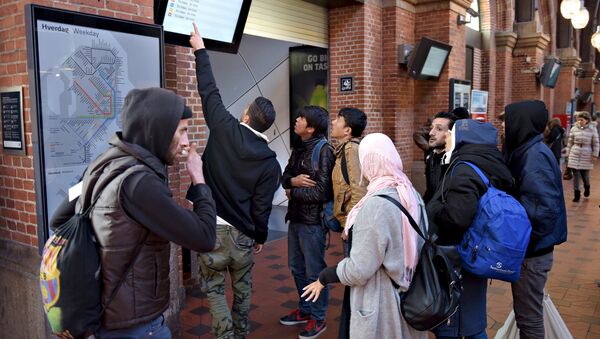Danish Integration Minister Inger Støjberg has penned an article in the daily newspaper BT calling on immigrants to intensify their efforts to assimilate and immerse themselves in Danish society.
In her article, Støjberg identified a combination of laziness and direct reluctance as among the reasons for poor assimilation among the "new arrivals," who are often unable to master the Danish language despite having lived in Denmark for several years. However, she also placed part of the blame on the Danes themselves, who, she claimed, weren't demanding enough when it came to the new arrivals, leading to the rise of parallel societies.
Støjberg called interpretation assistance to foreigners who have lived in Denmark for years "one of the consequences of decades of failed integration policy." In the rest of the world, there is an expectation that you learn a country's language provided that you have lived there for more than three years. The lack of such expectations in Denmark when it comes to immigrants, is a big mistake and a uniquely Danish one at that, Støjberg argued.
READ MORE: Let My Ghettos Go: Denmark Plans to Get Rid of Parallel Societies
"In Denmark, so far, it has been the complete opposite. In our naivety, we have willingly provided a lifelong publicly paid interpreter. And in doing so, we keep wondering why it is that that people don't learn the language," Støjberg wrote.
Therefore, the Danish government will change the rules for the sake of integration. Immigrants who have lived in the country for over three years will therefore pay for a translator's services when, say, visiting a doctor or consulting the authorities, out of their own pockets. According to Støjberg, this principle should be applicable "wherever relevant."
In the article, Støjberg dismissed potential counterarguments involving "ten-year-old boys acting as interpreters for their mothers having their cancer diagnoses announced" as "sloppy" and "careless."
READ MORE: Danish Party Leader Slammed for Schooling Somali Woman About Ethnicity
"Unless we dare to make demands on foreigners, we will fail to address the serious problem of parallel societies on Denmark, where people neither work, nor speak the language, nor share Danish values," Støjberg ventured. "A good place to start is to give back responsibility to foreigners who have come here: learn the language or pay for your own interpreter," the Danish minister wrote in conclusion.
In a poll carried out by BT, 93 percent of respondents argued that publicly funded interpreters were "not okay."
According to Statistics Denmark, over 500,000 of the total population of 5.7 million were immigrants. As of 2018, Poland, Syria, Turkey, Germany, Iraq and Romania were the most common countries of origin among immigrants in Denmark.
READ MORE: Danish Politician: Returning '3rd World Migrants' 'Best Affair in 1600 Years'


